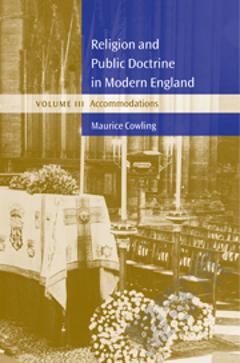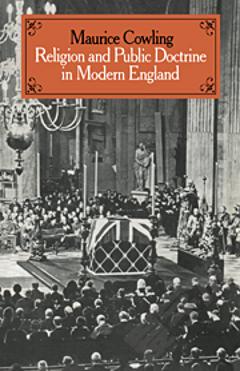Religion and Public Doctrine in Modern England:Volume 3
The third and concluding volume of Maurice Cowling's magisterial sequence examines three related strands of English thought - latitudinarianism, the Christian thought which has assumed that latitudinarianism gives away too much, and the post-Christian thought which has assumed that Christianity is irrelevant or anachronistic. As in previous volumes, Maurice Cowling conducts his argument through a series of encounters with individual thinkers, including Burke, Disraeli, the Arnolds, Tennyson and Tawney in the first half, and Darwin, Keynes, Orwell, Leavis and Berlin in the second. Central to the whole is Mr Cowling's contention that the modern mind cannot escape from religion. Religion and Public Doctrine in Modern England represents a massive contribution to the intellectual and cultural history of modern England, of interest to historians, literary and cultural critics, theologians, philosophers, economists, as well as to that broader reading public with a serious interest in the making of the English mental landscape.
{{comment.content}}








 京公网安备 11010802027623号
京公网安备 11010802027623号